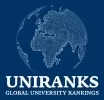This shift isn’t just changing trade and technology; it’s also reshaping how universities build partnerships, conduct research, and engage globally.
The concept of a “multipolar geo-strategy,” introduced by Yadong Luo and Rosalie Tung (2025), urges institutions to adapt to geopolitical complexity by diversifying partnerships, enhancing resilience, and cultivating regionally attuned yet globally connected strategies.
For higher education, this means fostering new models of academic diplomacy, research mobility, and international collaboration that can thrive amid global fragmentation.
What Is a Multipolar Geo-Strategy, and Why It Matters to Universities?
A multipolar geo-strategy is an adaptive framework where organizations, and now universities, tailor their engagement to different geopolitical blocs instead of applying a single globalized model.
In the academic context, this approach means:
- Deepening regional partnerships while staying open to inter-bloc cooperation.
- Using connector nations to maintain dialogue between politically distant regions.
- Strengthening research independence while aligning projects with local needs.
- Building resilient ecosystems that can absorb global disruptions and policy shifts.
Universities adopting this mindset go beyond traditional “Western-centric” internationalization. They create multi-directional bridges, connecting knowledge flows across continents in ways that reflect both global responsibility and regional realities.
Universities Applying the Multipolar Model Across Continents
From North America to the Middle East, leading institutions are already translating this model into tangible impact. Each demonstrates how universities can thrive in a world defined by multiple centers of power.
North America – University of Toronto (Canada)
Balancing Global Research with Regional Stability
The University of Toronto exemplifies multipolar engagement through dual strategic alliances, deep ties with U.S. and ASEAN institutions. It collaborates with the University of California system and Southeast Asian partners on AI ethics and quantum innovation, strengthening both North American and Asia-Pacific academic networks. By operating as a connector university, Toronto safeguards research continuity despite shifting trade and policy conditions.
“We have to collaborate globally but with resilience, ensuring research continuity regardless of global shifts.” ~Prof. Meric Gertler, President of the University of Toronto (2024)
Europe – University of Oxford (United Kingdom)
Localized Partnerships with Global Relevance
Oxford’s Africa Oxford Initiative (AfOx) and the Oxford China Centre reflect a deliberate shift toward regional hubs of impact. Each hub tailors research to local contexts, from public health in Africa to green innovation in Asia, illustrating the “confederation” model proposed by Luo and Tung. Rather than exporting a single academic model, Oxford now manages semi-autonomous regional nodes, ensuring flexibility while preserving its global mission.
Asia – National University of Singapore (NUS)
A True “Connector Country” in Education and Research
NUS personifies the multipolar approach. As Singapore maintains balanced relations with the U.S., China, and the EU, NUS has established modular collaboration ecosystems that adapt to each bloc’s research agenda. Its partnerships in digital governance, climate science, and biomedical research embody the idea of “pragmatic inclusivity”, cooperating across divides through carefully managed, mutually beneficial programs.
Africa – University of Cape Town (South Africa)
Championing Regional Research Autonomy
UCT leads the African Research Universities Alliance (ARUA), connecting over 20 institutions to co-develop African-led solutions for sustainability and innovation. This South–South collaboration enhances academic vitality while preserving independence from external political and funding pressures, the perfect illustration of balancing “vitality and immunity” in Luo and Tung’s framework.
Middle East – Horizon University College (United Arab Emirates)
Bridging East and West Through Academic Diplomacy
Horizon University College in Ajman stands as the Middle East’s most compelling example of the multipolar education model. Located in a neutral hub country, Horizon bridges diverse academic blocs by promoting innovation, entrepreneurship, and business leadership. Its flagship BBA in International Business program integrates global trade insights with regional case studies, preparing graduates to navigate today’s complex economic networks. Through UNIRANKS and WHERS initiatives, Horizon fosters student mobility and cross-bloc research exchange while maintaining strong partnerships with universities in Europe, Asia, and Africa.
By positioning itself within the UAE’s national strategy for knowledge diplomacy, Horizon illustrates how universities can transform geopolitics into pathways for collaboration, boosting both employability and international recognition.
Latin America – Pontifical Catholic University of Chile (PUC Chile)
Localized Innovation, Global Partnerships
PUC Chile combines global recognition with strong national relevance. Its cross-continental collaborations with the University of Tokyo and the University of Cambridge drive advancements in sustainable mining and climate adaptation. This multi-hub structure enables Chilean research to influence global policy while remaining deeply rooted in local environmental and economic challenges, a core principle of the multipolar paradigm.
Strategic Insights for Higher-Education Leaders
- Decentralize Without Disconnecting
Build strong regional ecosystems, clusters of research, innovation, and student exchange, while maintaining cross-continental flexibility. - Leverage Connector Nations for Balanced Collaboration
Partner with countries like Singapore, the UAE, and South Africa that maintain neutrality and open channels between competing blocs. - Integrate Geopolitical Awareness into Institutional Planning
Incorporate geopolitical intelligence into internationalization, risk management, and curriculum design to align academia with real-world dynamics.
The world’s academic map is no longer unipolar. Universities now operate within a network of shifting centers, each demanding tailored strategies and local sensitivity.
By embracing multipolar geo-strategy, institutions can sustain growth, maintain independence, and enhance global relevance, even amid geopolitical fragmentation. Higher education can transcend politics to become the diplomatic bridge of the modern era, connecting knowledge, cultures, and economies across every pole of influence.
“Universities must become the diplomats of knowledge, connecting nations when politics cannot.”
— Prof. Rosalie L. Tung, Simon Fraser University (2025)
References
Luo, Y., & Tung, R. L. (2025). A Multipolar Geo-Strategy for International Business. Journal of International Business Studies, 56(821–829).
University of Toronto. (2024). Global Engagement Report.
Oxford University. (2024). Africa Oxford Initiative Annual Review.
National University of Singapore. (2024). Strategy 2030.
African Research Universities Alliance (ARUA). (2023). Policy Brief on Regional Research Collaboration.
Horizon University College. (2025). UNIRANKS Elite Profile and Program Reports.
Pontifical Catholic University of Chile. (2024). Global Partnerships and Sustainability Report.
Gopinath, G. (2024). Geopolitics and Its Impact on Global Trade and the Dollar. International Monetary Fund.








Add comment